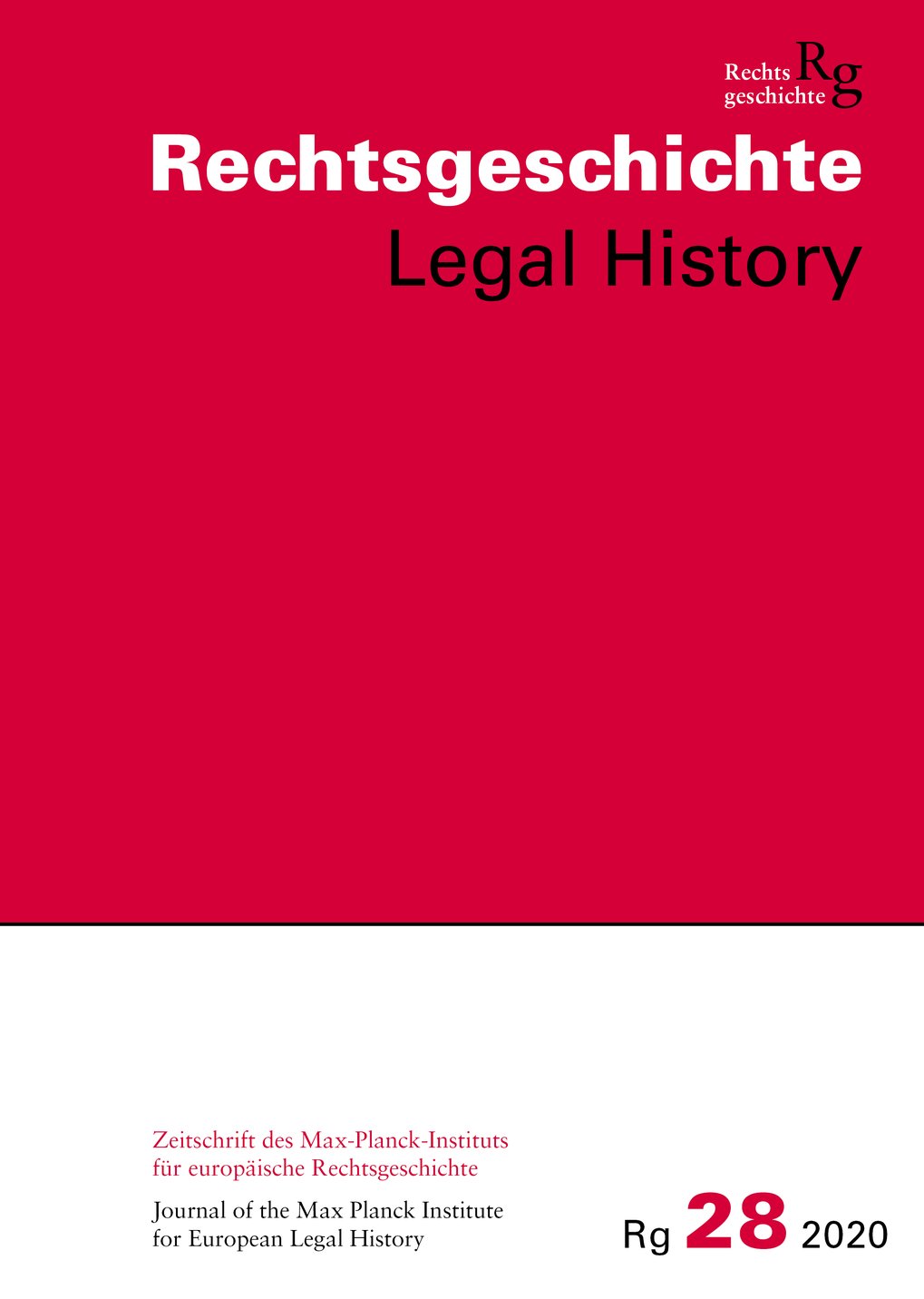The MPI for European Legal History
published a new issue of its journal Rechtsgeschichte.
This year's edition of Rechtsgeschichte
– Legal History. Journal of the Max Planck Institute for European Legal History
was published recently in September and once again brings together outstanding
research contributions on legal historical topics as well as a considerable
number of reviews. Our sincere thanks go to the 57 authors who, despite the
difficult conditions created by the Covid-19 pandemic, made it possible for us
to deliver this year’s issue on time.
Five research contributions on
very different topics kick off the issue. Tamar Herzog explores the debates
between Romanists and Germanists regarding the origins of European law, with a
particular focus on Spanish legal historiography. Her study demonstrates what
narratives of legal origins reveal about law as well as about national or
European identities. Christoph Meyer’s article is devoted to the epitomisation
of Latin legal texts: a widespread technique that was significant not just in
methodological and literary but also in normative-functional terms. Based on a
plethora of primary sources and a detailed knowledge of the scholarly
literature, Meyer offers a tour d'horizon of the often underrated method
of epitomisation from late antiquity to the modern era. Thomas Pierson uses the
substantial collection of so-called »service letters« (Dienstbriefe) of
the city of Frankfurt am Main to trace the development of the contractual
employment conditions of the city’s employees from the late 14th to the early
19th century. His findings provide stimuli for both the legal and the social
history of pre-industrial labor. Martin Schennach probes the little-known
depths of Austrian constitutional law scholarship. Since the second half of the
18th century, the flourishing genre of Staatsrechtslehre developed that
aimed at the construction of an »entire Austrian state« (österreichischer
Gesamtstaat). Finally, Klaus Günther analyses the historical conditions,
characteristics, and consequences of the democratic transformation of modern
criminal law. This leads him to examine the basic values of social cohesion and
the assumption of duties of care and respect (Fürsorge- und Respektpflichten)
by the citizens of a state.
Seven focus articles then
deal with the legal history of the financial markets, for the first time
systematically examining the fundamental relationships between risk cultures,
crisis experiences, and developmental dynamics of (the knowledge of) law. The
editors of this section, Carsten Fischer and Andreas Thier, introduce the topic.
Jan Schröder provides the foreword to the second focus section, which is
dedicated to the memory of Knut Wolfgang Nörr, who died in 2018. Three
contributions pay tribute to both the personality and the oeuvre of Nörr, who
for many years maintained a close association with the MPIeR as an External
Scientific Member.
More than three dozen reviews
deal with publications of relevance to legal history and published within the
last two years. As in previous issues of the Rg, many reviews are
written in a language other than that of the publication itself. The reviewed
works’ contents range chronologically from antiquity to the present, and
geographically from the coasts of Chile and the highlands of Mexico to northern
European regions and on to Tanzania, Indochina and the empire of Genghis Khan.
Finally, the theme of the finance
is also taken up by Juliane Voß-Wiegand, who provides an introduction to the
numismatic collection of the Deutsche Bundesbank. She is not only the author of
this issue’s marginalia on the historical monetary symbols preserved
there, but also curated the impressive series of images that illustrates this
year's print edition of the Rg.
Rechtsgeschichte — Legal
History 28 is as always available in print from the publisher
Vittorio Klostermann and online in Open
Access via the journal's website.


No comments:
Post a Comment
Note: Only a member of this blog may post a comment.